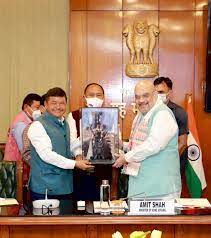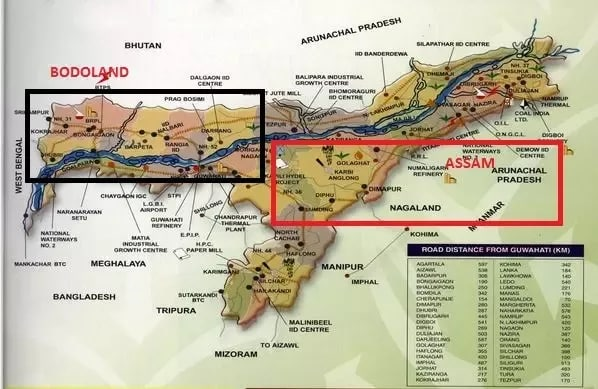CURRENT AFFAIRS
Get the most updated and recent current affair content on Padhaikaro.com
Karbi Anglong Agreement
- Vaid's ICS, Lucknow
- 02, Oct 2021

Why in News?
The five insurgent groups of Assam, the Centre and the State government have recently signed to end years of violence in the Karbi Anglong region.
Key points of the Agreement:
- Under the peace accord, more than 1,000 armed cadres have given up violence and joined the mainstream.
- The agreement provides for their rehabilitation.
- The Centre will make available a special development package of Rs1,000 crore over the next five years for the development of Karbi areas.
- The Assam government will set up a Karbi Welfare Council for focused development of Karbi people living outside the ‘Karbi Anglong Autonomous Council’ (KAAC) area.
- The consolidated fund of the State will be augmented to supplement the resources of KAAC.
Who are Karbis?
- A major ethnic community of Assam— Karbis are dotted by many factions, and marked by ethnic violence, killings, abductions, taxation since the late 1980s.
- Originally, they are one of Northeast India’s tribal groups, largely inhabiting the Karbi Anglong and Dima Hasao (formerly North Cachar) hills districts.
What did the Karbis demand?
The core demand of the Karbi outfits was the formation of a separate state.
- In late 1990s, the Karbi National Volunteers (KNV) and Karbi People’s Force (KPF) had come together to form the United People’s Democratic Solidarity (UPDS).
- In November 2011, the organisation decided to lay down its arms and sign a tripartite memorandum of settlement with the Centre and the Assam government, settling for enhanced autonomy and special packages for the Karbi Anglong Autonomous Council (KAAC).

Facts for Prelims:
Scrub Typhus:
- Also known as bush typhus, scrub typhus is a disease caused by bacteria called ‘Orientia tstsugamushi‘, which was formerly ‘Rickettsia’.
- It typically spread to people through the bites of infected chiggers or larval mites.
6-APA
6-APA is an abbreviation used for the name of the chemical compound-6-aminopenicillanic acid. In 1958, Beecham scientists from Brockham Park, Surrey, found a way to obtain 6-APA from penicillin. Other β-lactam antibiotics could then be synthesized by attaching various side-chains to the nucleus.